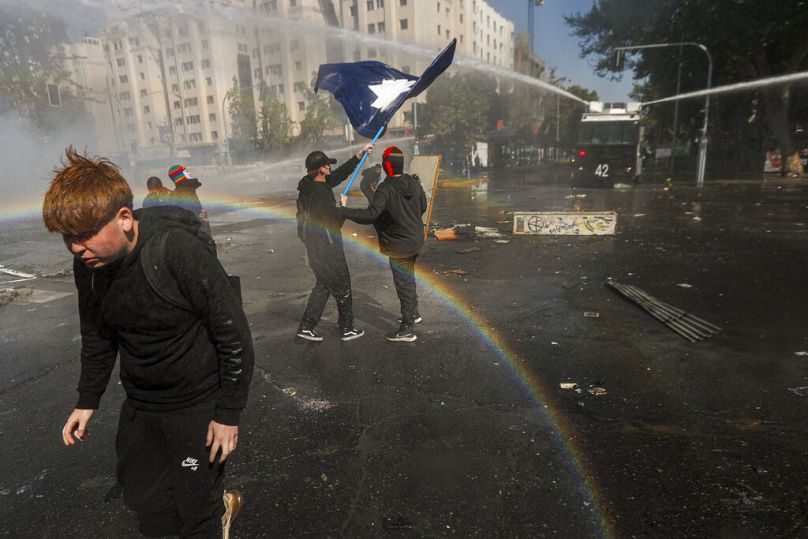In the capital Santiago, demonstrators lit fires on Tuesday and threw rocks at police who responded with tear gas and water cannons.
There have been fresh street clashes in several cities across Chile, as the country marks the third anniversary of massive protests against the country's large inequality divide.
 ADVERTISEMENT
ADVERTISEMENT
 ADVERTISEMENT
ADVERTISEMENT
The government ordered some 25,000 police officers to the streets to prevent individuals from carrying out acts of vandalism.
In the capital Santiago, demonstrators lit fires on Tuesday and threw rocks at police who responded with tear gas and water cannons.
The main demands back in 2019 were for improvements in health, education, pensions and more housing. The violence then left 33 dead, and more than 400 people with eye injuries. There were also more than 3,000 complaints of human rights violations.
The unrest then lead to efforts to draft a new constitution but it was surprisingly rejected as being too far-reaching by sections of the electorate.
Marking the anniversary, Chile's president called for dialogue.
"There have been efforts during all these years, undoubtedly, I do not intend to deny it, but we have not yet achieved the reforms that would resolve the weaknesses of Chileans' social rights," Gabriel Boric said.
Despite the rejection of a new constitution, Chileans are still demanding change against the background of the country's struggling economy.
Chile is experiencing growing insecurity due to an increase in crime, uncontrolled illegal immigration in the north of the country and a wave of arson attacks in the south, the economy is slowing down. According to the International Monetary Fund, the country will contract by 1% next year, which will affect employment.











